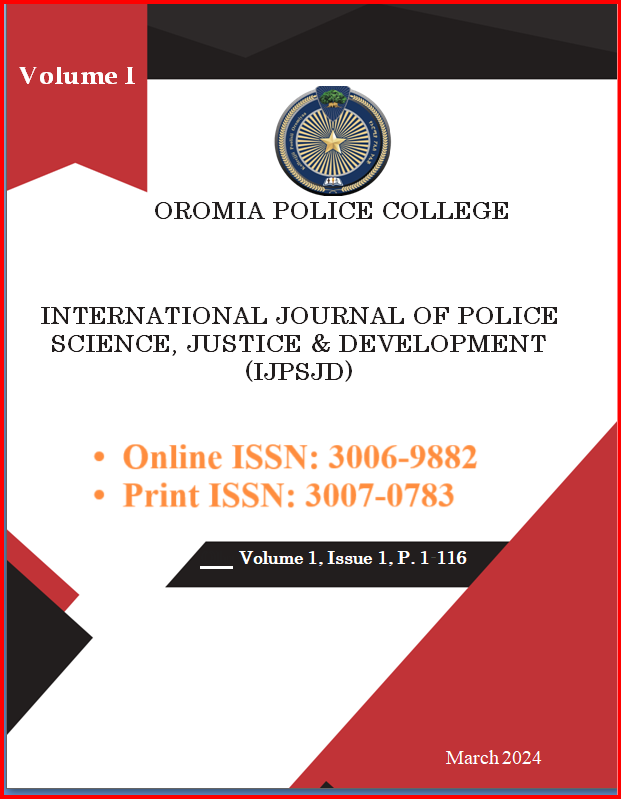The Practices of Intelligence Led-policing in the Oromia Regional State
Intelligence led-policing is a management system and leadership philosophy that effectively coordinates the sharing of criminal information and maximizes strategic leadership and decision making. However, intelligence led-policing (ILP) model is not effectively practiced across the world due to various reasons. Consequently, ILP is not able to address the social problems and issues. There have been no sufficient studies on the practices of intelligence-led policing in the Oromia National Regional State. The main objective of this study was to assess the practice of intelligence-led policing in the region. To achieve this, the researchers used a questionnaire, FGD, and key informant interviews as tools of data collection. The result of the study depicted
Keywords:
Intelligence, Policing, Models, Intelligence Led-policingAbstract
Intelligence led-policing is a management system and leadership philosophy that effectively coordinates the sharing of criminal information and maximizes strategic leadership and decision making. However, intelligence led-policing (ILP) model is not effectively practiced across the world due to various reasons. Consequently, ILP is not able to address the social problems and
issues. There have been no sufficient studies on the practices of intelligence-led policing in the Oromia National Regional State. The main objective of this study was to assess the practice of intelligence-led policing in the region. To achieve this, the researchers used a questionnaire, FGD, and key informant interviews as tools of data collection. The result of the study depicted
that police activities were incident-driven, there were more untrained community policing officers deployed across the region. Crime investigation and prevention were not supported by Intelligence Led-policing, and the three Police Training Centers of the region did not offer courses on Intelligence Led-policing. Moreover, this study concluded that the police and community were not cooperating, the majority of police members did not participate in information collection, and there was no system for collecting data in the community policing department. Furthermore, the Intelligence Led policing department at all levels did not have any
job description, so that Intelligence Led Policing could not be implemented as expected. As a result, police leaders have been made decisions without analyzing information scientifically and the activities of the police have not successfully handled crimes, specifically terrorism and corruption issues. The study recommended that the strategic police and political leaders of Oromia National Regional State should reach a consensus to change the policing services to proactive policing by exhibiting sound evidence of the negative impact of the present models of policing practiced in the regional state.
Downloads

Additional Files
Published
Issue
Section
License
Copyright (c) 2024 opc

This work is licensed under a Creative Commons Attribution-NonCommercial 4.0 International License.


 Contact Us
Contact Us 